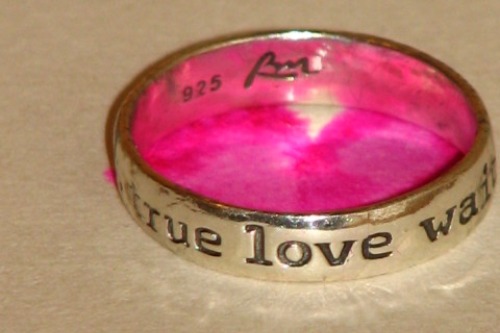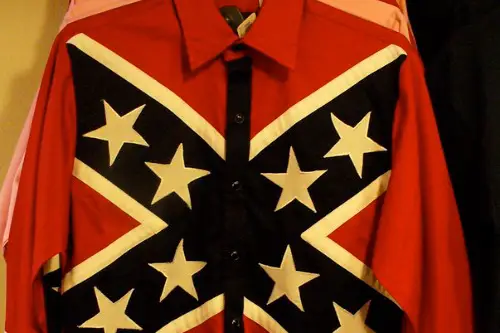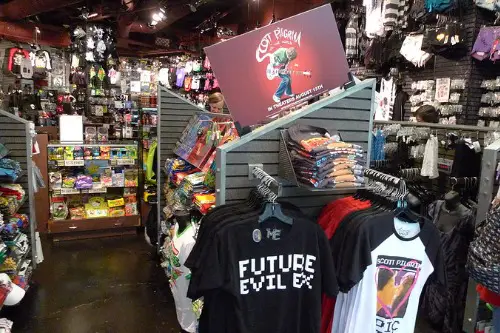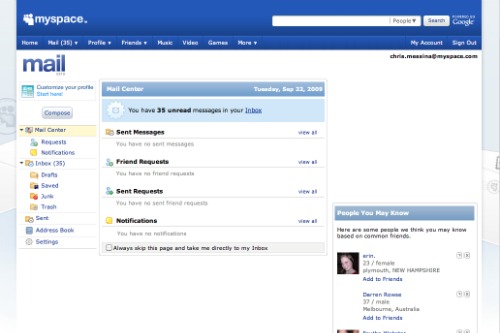1. Bragging About Not Reading Books

Back in middle school, loudly proclaiming you “never read unless it’s for school” was oddly a badge of honor. The idea of being “too cool” for books somehow translated into social capital. Maybe it was an act of rebellion against homework or a way to signal you weren’t a “nerd.” But looking back, it’s hard not to see that as a big red flag for intellectual curiosity.
As adults, a prideful disdain for reading feels more like willful ignorance. Informed conversations, empathy, and personal growth often come from reading widely. Now, someone bragging about avoiding books sounds less edgy and more closed-minded. Literacy isn’t just academic—it’s cultural currency.
2. Using “That’s Gay” as an Insult

It’s tough to admit now, but that phrase was once tossed around constantly in middle school hallways, Aaron Gouveia of CNN explains. Saying something was “gay” to mean “lame” or “stupid” was normalized—and even laughed at. For many, it didn’t register as offensive back then, but it deeply was. That casual homophobia is now rightfully recognized as harmful and exclusionary.
The fact that it was ever acceptable is a serious red flag. It showed how ingrained prejudice can be, especially when it’s not challenged. Many people who said it didn’t even understand what they were reinforcing. Today, it’s a reminder of how far we’ve come—and how far we still need to go.
3. Obsessing Over “Purity Rings” and Virginity Pacts

Thanks to early 2000s pop culture (hello, Jonas Brothers), a lot of middle schoolers wore purity rings or pledged abstinence, according to Ayomikun Adekaiyero of Business Insider. It seemed innocent enough, rooted in family or religious values. But in retrospect, the heavy emphasis on virginity—especially for girls—was steeped in control and shame. It framed sexuality in terms of morality rather than personal agency.
That kind of ideology often led to confusion and guilt during adolescence. It placed the burden of “purity” disproportionately on young women. Now, viewing someone’s worth through their sexual history is a big red flag. Healthy relationships are based on respect and communication, not pledges made at 13.
4. Wearing Confederate Flag Apparel “Because It Looked Cool”

In some parts of the country, kids wore Confederate flag t-shirts or belt buckles without fully understanding the symbol. It was often dismissed as Southern pride or a fashion statement. But the reality is that the Confederate flag is closely tied to slavery, white supremacy, and rebellion against civil rights, Erin Blakemore of National Geographic explains. Wearing it signals a dangerous level of ignorance or indifference.
Even if someone didn’t mean harm, the symbol has always been controversial. In hindsight, flaunting it feels like waving around hate under the guise of “heritage.” That middle school “edginess” has since been widely recognized for what it was. Today, it’s a pretty glaring red flag for regressive views.
5. Thinking “Hot Topic Nihilism” Was a Personality

Wearing black eyeliner, skull jewelry, and “I hate everyone” t-shirts from Hot Topic was a vibe, according to Pernell Quilon of BuzzFeed. For a lot of kids, it was an entry point into punk or alternative culture. But when the aesthetic masked genuine disdain for everything and everyone, it got dicey. There’s a difference between edgy fashion and toxic apathy.
Some kids adopted it as a way to process emotions, which is valid. But for others, it became a form of antisocial performance. When that persona carries into adulthood, it can signal emotional unavailability. Nihilism might feel deep at 13, but at 30, it usually just signals someone who’s avoided introspection.
6. Making Fun of “Try-Hards”

Middle school had a strange rule: if you cared too much, you were cringe. Students who studied hard, showed emotion, or got excited about anything were labeled “try-hards.” That term discouraged ambition and authenticity. It made apathy look like the only cool option.
As adults, we realize that caring is actually brave. Making an effort takes confidence and self-respect. Mocking people for trying often signals insecurity in the person doing the mocking. These days, “try-hard” isn’t an insult—it’s a compliment in disguise.
7. Idolizing “Player” Behavior

Boys who juggled multiple crushes or bragged about “breaking hearts” were often glorified. It was considered cool to be a “ladies’ man,” even if it meant manipulating feelings. Some girls were praised for playing “hard to get,” too, reinforcing weird games over honesty. Middle school taught us that love was about winning, not connecting.
Now, that behavior screams emotional immaturity. Using people for validation or bragging about conquests is a major red flag in adult relationships. It shows a lack of empathy and respect. Real connection isn’t about playing the field—it’s about showing up authentically.
8. Bullying People for Their Clothes

Anyone who didn’t wear the “right” brand—Abercrombie, Hollister, or whatever was in at the time—was a target. Fashion policing was brutal, especially for kids from low-income families. Making fun of off-brand shoes or thrifted outfits was seen as normal. But it was rooted in classism and cruelty.
Looking back, it’s uncomfortable to realize how normalized that behavior was. Today, someone mocking others for their clothes just seems shallow. It’s a red flag for lack of compassion and self-awareness. Personal style should be celebrated—not a reason to exclude someone.
9. Making Edgy Jokes About Violence or Mental Health

Joking about school shootings, depression, or suicide was unfortunately common in some middle school circles. It was often brushed off as “dark humor” or “just jokes.” But humor like that normalizes serious issues and can silence people who are genuinely struggling. It also desensitizes entire peer groups to very real threats.
If someone still makes those kinds of jokes as an adult, it’s a sign they haven’t grown emotionally. Humor can be a coping mechanism, but it shouldn’t come at the expense of empathy. There’s a difference between edgy and dangerous. Now, those jokes are more red flag than punchline.
10. Measuring Worth by Your MySpace “Top 8”

The politics of MySpace were intense—especially the infamous Top 8. Friends would get into fights over being “moved down” or left off completely. It turned friendships into a popularity contest you couldn’t opt out of. Social status was literally ranked and publicly displayed.
That kind of digital clout-chasing was an early sign of toxic validation-seeking. If someone today is obsessed with follower counts or public approval, that’s worth noting. There’s nothing wrong with enjoying social media—but when it defines your self-worth, it’s a problem. Top 8 drama belongs in 2007, not your adult relationships.
11. Spreading Rumors for Entertainment

Gossip was practically currency in middle school. Starting or spreading a rumor was a way to climb the social ladder. Sometimes it was about crushes, sometimes about something more serious—but either way, it was about power. The damage it did was rarely considered.
As adults, we know that behavior can destroy reputations and mental health. Spreading rumors isn’t just childish—it’s mean-spirited and manipulative. It shows a disregard for truth and a willingness to hurt others to feel relevant. That’s more than a red flag—it’s a flashing warning sign.
12. Using Slurs Without Understanding Them

Many middle schoolers threw around slurs they didn’t fully understand—racial, gender-based, or ableist. They were repeated from older siblings, pop culture, or peers, often without pushback. But ignorance doesn’t excuse harm. These words carried real pain, even if the speaker didn’t realize it.
Now, using slurs—even “ironically”—is a clear red flag. It reflects a lack of education and emotional maturity. Words matter, and respecting others’ identities isn’t optional. Growing up means unlearning what was once brushed off as “just words.”
13. Treating Teachers Like Enemies

Some kids made it their mission to torment teachers, as if authority figures were the ultimate oppressors. Disrupting class or refusing to participate was a form of rebellion. But in most cases, it was just lashing out at someone doing their job. That misplaced hostility often masked deeper issues.
Today, mocking or undermining educators is a big red flag for entitlement. It shows a lack of respect for people who are trying to help. Authority isn’t always perfect, but default disrespect is not the answer. Empathy beats defiance when it comes to maturity.
14. Acting “Above” Everything

There was always that kid who rolled their eyes at everything—school spirit days, group activities, even birthday parties. They wanted to be too cool for school, literally. But that constant detachment often signaled insecurity, not confidence. Being above it all meant being involved in nothing.
As adults, we value people who can engage, participate, and show enthusiasm. Apathetic detachment is no longer appealing—it’s isolating. If someone still refuses to connect with anything, that’s a red flag for emotional availability. Caring isn’t cringe; it’s character.


